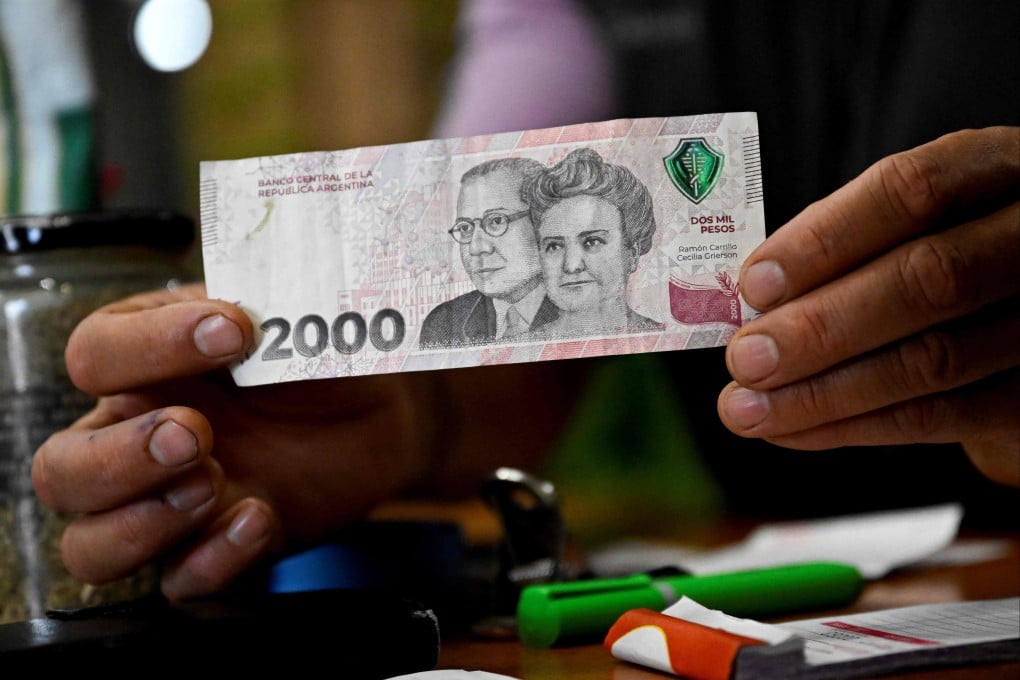Argentina to allow bank accounts in China’s yuan as internationalisation push takes ‘another small step’
- Argentina says it will accept the yuan for deposit-taking in savings and current accounts as the South American nation is battling a dwindling supply of US dollars
- Argentina started to pay for Chinese imports in yuan rather than US dollars in April amid China’s push for greater international use of its currency

Argentina will allow commercial banks to open customer accounts in yuan, as the Chinese currency makes another step in its global use, with the South American nation battling a dwindling supply of US dollars.
China has long been pushing for internationalisation of the yuan, while the move also highlights the dire financial situation of the second-largest country in South America.
“The Central Bank of Argentina incorporated the yuan as an accepted currency for deposit-taking in savings and current accounts,” the central bank said in a statement on Thursday.
The decision follows approval by the country’s securities regulator that allows the issuance of securities in the local market that are settled in yuan.
Opening yuan accounts could attract more people and enterprises to exchange Argentinian peso to yuan, as more or less a ‘safe haven’ currency
“Opening yuan accounts could attract more people and enterprises to exchange Argentinian peso to yuan, as more or less a ‘safe haven’ currency, instead of exchanging all of their local currency to US dollars,” said Dong Jinyue, a senior China economist at BBVA Research.